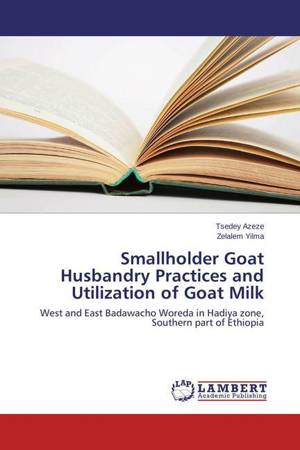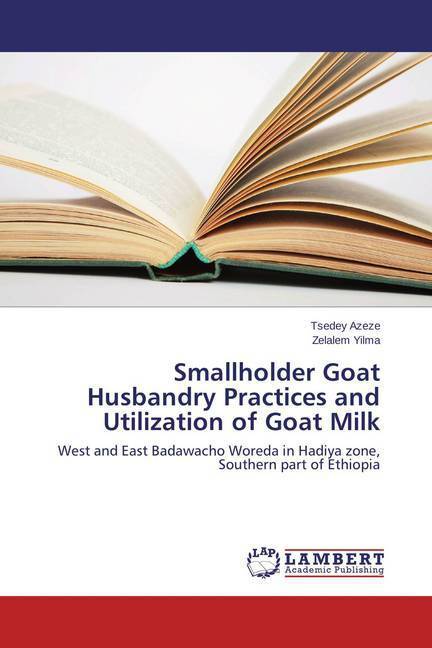
Bedankt voor het vertrouwen het afgelopen jaar! Om jou te bedanken bieden we GRATIS verzending (in België) aan op alles gedurende de hele maand januari.
- Afhalen na 1 uur in een winkel met voorraad
- In januari gratis thuislevering in België
- Ruim aanbod met 7 miljoen producten
Bedankt voor het vertrouwen het afgelopen jaar! Om jou te bedanken bieden we GRATIS verzending (in België) aan op alles gedurende de hele maand januari.
- Afhalen na 1 uur in een winkel met voorraad
- In januari gratis thuislevering in België
- Ruim aanbod met 7 miljoen producten
Zoeken
Smallholder Goat Husbandry Practices and Utilization of Goat Milk
West and East Badawacho Woreda in Hadiya zone, Southern part of Ethiopia
Tsedey Azeze, Zelalem Yilma
Paperback | Engels
€ 59,95
+ 119 punten
Omschrijving
Goat production in Ethiopia is constrained by grazing land shortage, water scarcity, feed shortage, draught and lack of credit. They are usually kept as a source of cash, milk and wealth. The peak goat marketing periods of the year are major cultural and religious holidays (festivals), ceremonies and the start of Ethiopian New Year. The majority of households provide goat milk to their children. The chemical composition of the goat milk samples are within standard values, whereas, total bacterial and coli form counts were much higher than acceptable levels. Interventions focused on health, feed and feeding managements, water development, marketing and credits are needed. Extension support in delivering the necessary training and production technologies/inputs could help smallholder farmers to build their flock and improve productivity. Sanitary handling of goat milk and maintenance of a clean production environment are essential prerequisites for reduced microbial load and improved chemical composition of goat milk.
Specificaties
Betrokkenen
- Auteur(s):
- Uitgeverij:
Inhoud
- Aantal bladzijden:
- 152
- Taal:
- Engels
Eigenschappen
- Productcode (EAN):
- 9783659637315
- Verschijningsdatum:
- 25/03/2015
- Uitvoering:
- Paperback
- Afmetingen:
- 150 mm x 220 mm
- Gewicht:
- 231 g

Alleen bij Standaard Boekhandel
+ 119 punten op je klantenkaart van Standaard Boekhandel
Beoordelingen
We publiceren alleen reviews die voldoen aan de voorwaarden voor reviews. Bekijk onze voorwaarden voor reviews.









